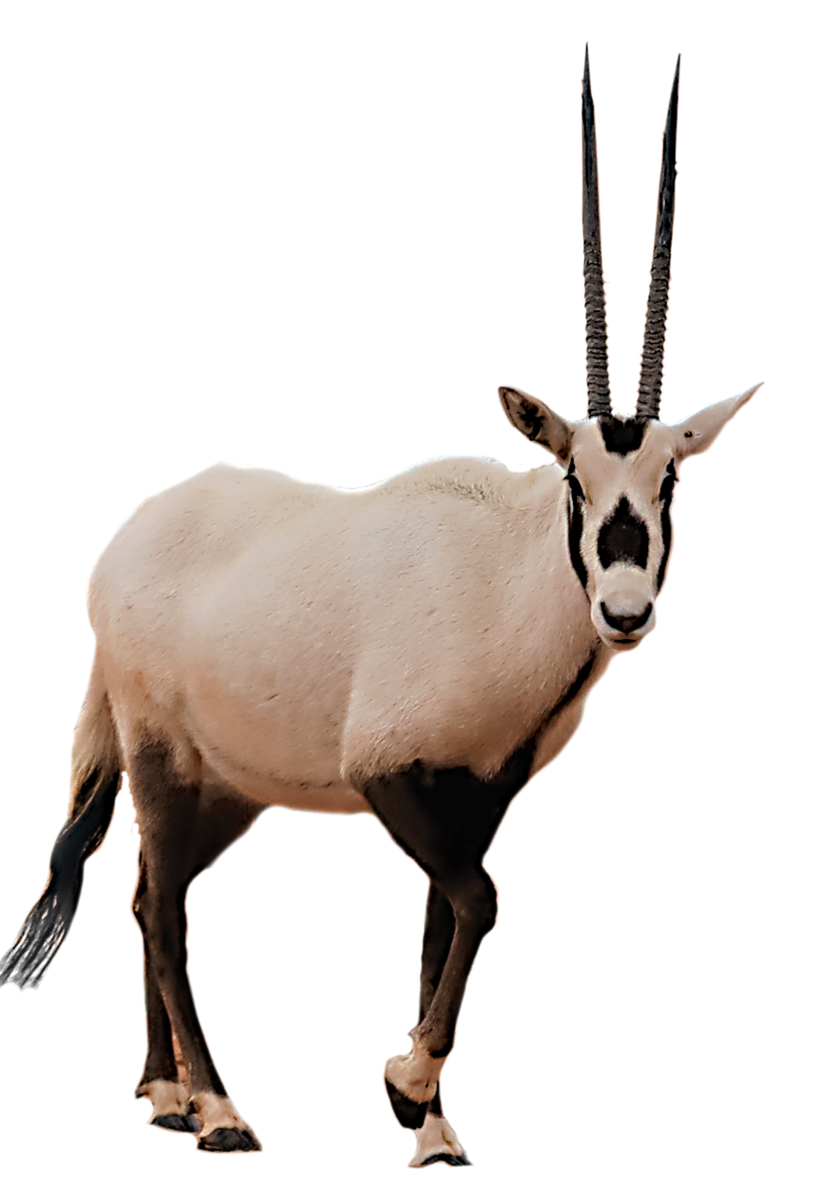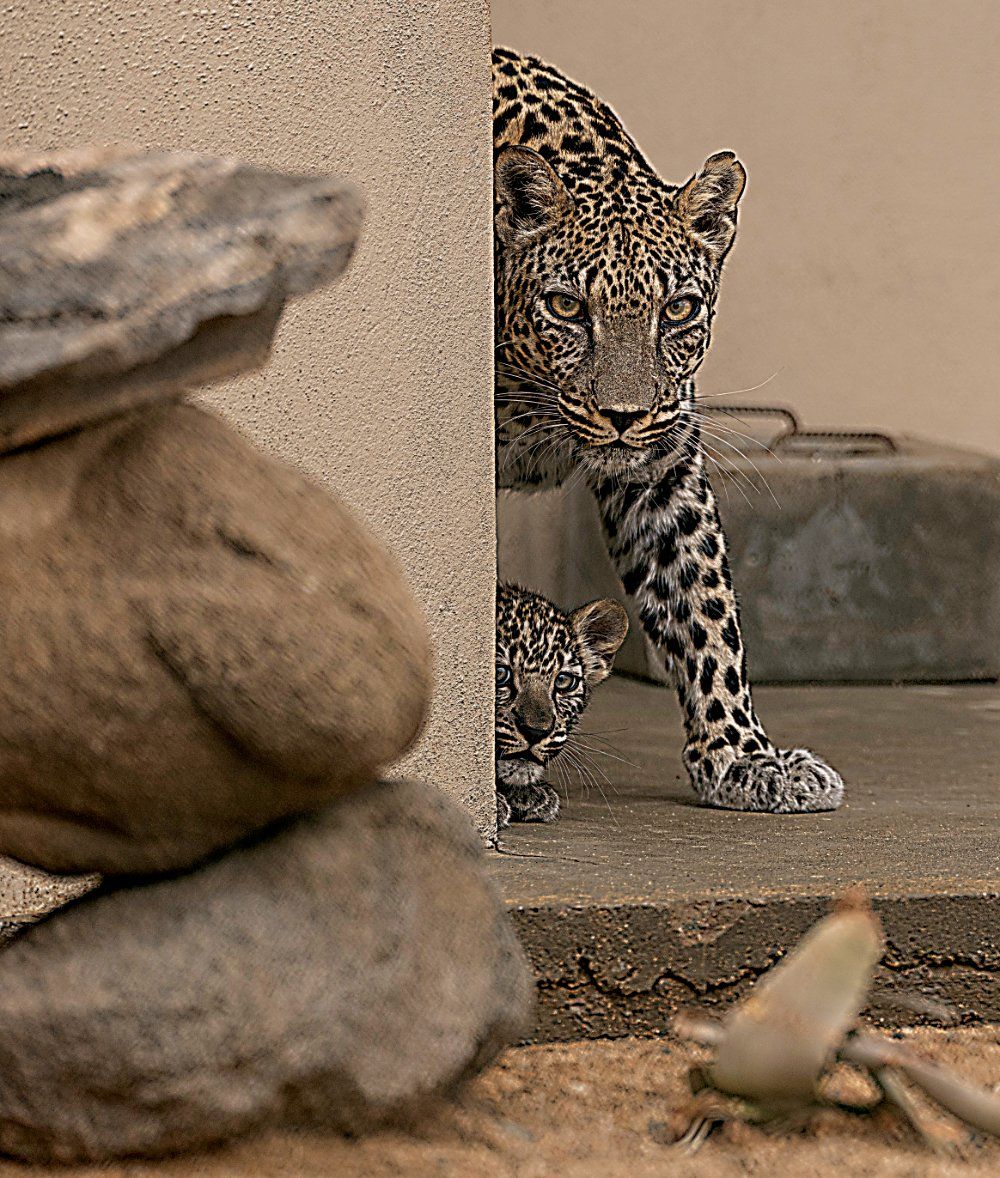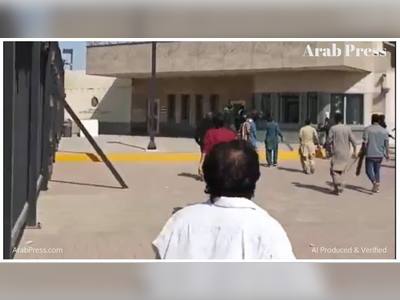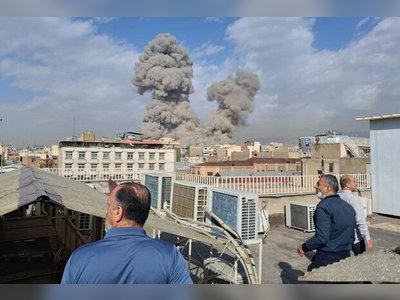
Arabian Leopard Day: Release of oryx, gazelles and ibex paves way for big cat’s return to AlUla
Then, suddenly, seeing nothing between them and the horizon, they gain confidence. As if on a signal, the entire herd breaks to a gallop, hurtling toward their new-found freedom in the AlUla valley.
The sight and sound of the spectacular Arabian oryx thundering across the valley, the animals’ long, curved horns slicing through the air like scimitars and their hooves kicking up the dust of centuries, would have been as familiar to the grandparents of today’s Saudis as it was to the ancient peoples who lived here and left their mark on the landscape millennia ago.

But now, following an intensive captive breeding program, the first of more than 1,500 animals from four once-common species — Arabian oryx, Arabian gazelles, sand gazelles and Nubian ibex — have been reintroduced to the wild in three of the six nature reserves that are being established by the Royal Commission for AlUla.
This is no exercise in pure sentimentality. Upon the success of this project hangs another — the eventual return to its ancient natural habitat of the Arabian leopard.
The RCU, said Dr. Stephen Browne, wildlife and natural heritage executive director at the commission, “is unleashing the power of nature’s balance.
“RCU’s conservation and restoration initiatives are successfully moving forward in the revitalization of AlUla’s natural habitat — and one day we will reintroduce the Arabian leopard back to the wilds of AlUla.”
And, with a successful leopard breeding program already well underway, that day could come as soon as 2030.
Like the herds upon which it once depended, the Arabian leopard was hunted to extinction in Saudi Arabia. Designated as “critically endangered” by the International Union for Conservation of Nature, fewer than 200 are believed to exist throughout the entire Arabian Peninsula, mainly in Oman’s Dhofar Mountains.
In time, when the herds are established in the reserves in sustainable numbers, they will become prey for the apex predator, restoring a natural harmony that existed in the region for millennia before it was disrupted by humankind.
The rewilding of the region is the work of the RCU, which was set up in 2017 to preserve and develop AlUla, a region of outstanding natural, historical and cultural significance in northwest Saudi Arabia, as a sustainable, desirable area in which to live and work and to visit.
The RCU is developing numerous initiatives across archaeology, tourism, culture, education and the arts, while preserving the area’s rich natural and historic heritage.
It was here that the kingdom of Dadan rose in the seventh century B.C., dominating the trans-Arabian trading routes that passed through the AlUla valley.
In its wake at the turn of the millennium came the Nabateans, creators of the city of Petra in modern-day Jordan and its less well-known but equally spectacular southern counterpart Hegra, which in 2007 became the first site in Saudi Arabia to be inscribed on UNESCO’s World Heritage List.
Visitors to AlUla today can see the rock-carved tombs left behind by this mysterious people, for whom the sight of leopards and their prey would have been commonplace.
They hunted the same animals as the leopards but did so sustainably, taking care never to drive the animals upon which they depended to extinction — and this precious balance between human beings and the natural world around them predated the Nabateans by thousands of years.
Some 200 km to the east of AlUla, at two remote sites in Hail Province, is the world’s largest and most impressive collection of Neolithic petroglyphs, or rock carvings, adopted by UNESCO as a World Heritage Site of “outstanding universal value” in 2015.
Here can be seen hundreds of engravings of hunting and herding scenes, dating back thousands of years, in which the leopard and its prey, including ibex, feature prominently alongside human hunters, armed with bows and arrows and accompanied by packs of hunting dogs.
“We’re trying to restore this natural balance,” said Browne.
The first step on that journey has been to mend the landscape, bringing back the wild grasses and other plants upon which animals such as the oryx, ibex and gazelles depend.
“These areas needed protecting because they’ve been over-hunted and over-grazed,” said Browne. “It’s taken generations to get here. Now we’re hoping to turn it around in 10 years.”
Since February 2019, small numbers of animals have been released, and the success of those experiments has led to the current program.
This began with the release of 80 animals on Jan. 10, and by the end of the winter a total of 1,580 animals — 650 Arabian gazelles, 550 sand gazelles, 280 Arabian oryx and 100 Nubian ibex — will have been released across three of AlUla’s six designated nature reserves: Sharaan, Wadi Nakhlah and Al-Gharameel.
In all, the six designated reserves cover more than 12,400 sq. km — an area larger than Lebanon.
The expanded program, said Browne, “is an indicator of the reserves’ progress because released animals thrive only when the ecosystem is sustainable.”
The first step to achieving that sustainability was to end the over-grazing of the area by domestic herds.
“Most of the overgrazing was a result of people coming from outside of AlUla, following the rains and bringing in thousands and thousands of sheep and goats in trucks,” said Browne. “These animals would just walk from one side of the protected area to the other side, just grazing everything in their way.”
With that threat removed, it was time to restore the plant life, and the RCU is “working to help nature along,” Browne added.
 The Arabian leopard could return to AlUla as soon as 2030.
The Arabian leopard could return to AlUla as soon as 2030.So far, 100,000 trees have been planted in Sharaan reserve, and the “ultimate ambition is to plant 10 million,” Browne explained.
With sufficient food to sustain the reintroduced herds, the animals will also do their bit.
“They will keep the grasses down, and the trees will grow in a certain way because they are being browsed. And as they move around, the animals will spread natural fertilizer and those nutrients will start to cycle through the system,” said Browne.
Keeping tabs on the animals and their movements is a vital part of the research.
Only one of the reserves has physical fencing; as part of the great rewilding experiment, the others are “digitally” fenced. The latest in modern satellite-linked tracking, lightweight, solar-powered collars are being used to monitor the animals’ movements and habits, in line with guidance on managing releases from the International Union for Conservation of Nature.
On a large screen next to Browne’s office at RCU headquarters in AlUla, the animals can be tracked in near-live time.
“The satellite collar records where the animal is every two hours, which shows us what it’s doing, whether it’s walking, running, standing still, or even, heaven forbid, if it’s died,” he said.
“Some of them also have cameras on them. So, if we see that the animals seem to be going to the same place every day, and we don’t know why, we can press a button, the camera falls off, and we can go and collect it and see what the animal’s been up to.”
Thanks to this technology, “we’re finding new food sources and new water sources.”
On the ground, the protection and monitoring of the animals is the responsibility of teams of locally recruited rangers, of which there are now more than 120, backed by units of the Kingdom’s Special Forces for Environmental Security.
“The rangers are very much the face of RCU in the community. They’ll be out looking for issues, monitoring the animals, doing patrols,” said Browne.

“We’re also lucky that we have the Special Forces for Environmental Security. They are developing stations around the reserves and actively patrolling the perimeters and can apprehend any poachers who might come in with guns.”
The whole project is a delicate balancing act. If the herds grow too big for the space, over-grazing will again become a danger.
If that starts to happen, animals can be relocated, but their numbers are as likely to be kept under control by natural predation. Leopards might still be several years away, but predators such as the Arabian wolf will also be playing a part in the natural food chain.
To date, six leopard cubs have been bred at a special RCU facility in Taif, and plans are well-advanced to build a second dedicated breeding center in AlUla. The current leopards will remain in the breeding program but are unlikely to be released — that groundbreaking step will be taken by their cubs, or even their “grandcubs.”
“The leopards we have in captivity now have become quite used to people, and we need to start breeding out that familiarity with humans,” said Browne.
At the new center, cubs will be trained to hunt, starting with small prey, such as rabbits, and will learn to fend for themselves without human support.
In the meantime, “we are identifying the priority areas where we believe the leopards will survive — away from people, with sources of food and water, and so on.”
People are the remaining piece of the puzzle, and the RCU is preparing the local communities for the day the big cats return.
“We have to work with people and reassure them that when we release leopards, they won’t come and kill their livestock,” said Dr. Browne.
Practical support will be offered, in the form of security lights and night-time stockades for livestock and early warning systems that could alert communities via text message to the presence of a leopard in their area.
“But as well as educating people that leopards are not a threat, we also aim to demonstrate to them that having leopards there, having tourists coming to experience the wildlife of AlUla, will bring far more benefits for their families and their community than having a herd of goats,” Browne said.
Already, some 3,000 jobs have been created in and around AlUla connected to tourism and the RCU’s nature projects, and thousands more are on the way. The long-term goal is to create 38,000 jobs by 2035.
Thanks to what is on course to be one of the largest and most extraordinary rewilding projects the world has ever seen, human beings and wild animals will once again live side by side, in harmony with nature, in the AlUla valley.










